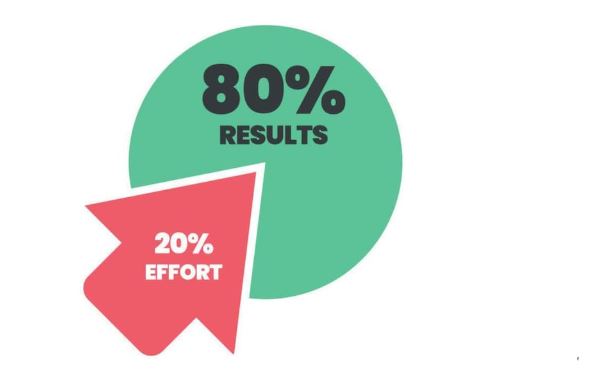


 1:14:44
1:14:44  2025-06-29
2025-06-29  3306
3306

The successful Italian economist Vilfredo Pareto (1848–1923) is the originator of this principle — known as the Pareto Principle — which is essentially based on addressing the most important causes.
For example, in a certain company, it might be observed that 80% of purchases are made by only 20% of customers (a specific group). Pareto also found through a statistical study that around 80% of the land in Italy was owned by only 20% of the population.
This principle can also be applied in problem-solving.
When analyzing a certain problem, one might often find that a large portion of the causes — possibly up to 80% — stems from only 20% of the factors. Therefore, focusing on addressing this small portion (20%) is often enough to resolve the problem.
Case Example
Officials at a large company that sells various products noticed an increasing number of returned goods that were shipped to customers.
Upon investigating the reasons behind this issue, they found that about 85% of the causes were due to one of two specific factors:
The remaining percentage of causes included other reasons such as the goods being broken or damaged during shipping.
By focusing their attention on correcting these two main issues, the company saw a significant drop in the return rate. This improvement came after officials made sure to select the correct product types and verify they were free from defects before shipping.
Reality Of Islam |
|

Labor short

A new ultra

Batteries p
 9:3:43
9:3:43
 2018-11-05
2018-11-05
10 benefits of Marriage in Islam
 7:5:22
7:5:22
 2019-04-08
2019-04-08
benefits of reciting surat yunus, hud &
 9:45:7
9:45:7
 2018-12-24
2018-12-24
advantages & disadvantages of divorce
 11:35:12
11:35:12
 2018-06-10
2018-06-10
 6:0:51
6:0:51
 2018-10-16
2018-10-16
 6:14:3
6:14:3
 2023-01-18
2023-01-18
 4:2:19
4:2:19
 2022-10-10
2022-10-10
 5:58:12
5:58:12
 2021-12-18
2021-12-18
 7:45:39
7:45:39
 2018-06-21
2018-06-21
 1:34:8
1:34:8
 2022-02-01
2022-02-01
 9:42:16
9:42:16
 2022-10-19
2022-10-19
bahlool & the throne of haroun rashid
 8:20:35
8:20:35
 2018-06-21
2018-06-21
 5:41:46
5:41:46
 2023-03-18
2023-03-18
| LATEST |